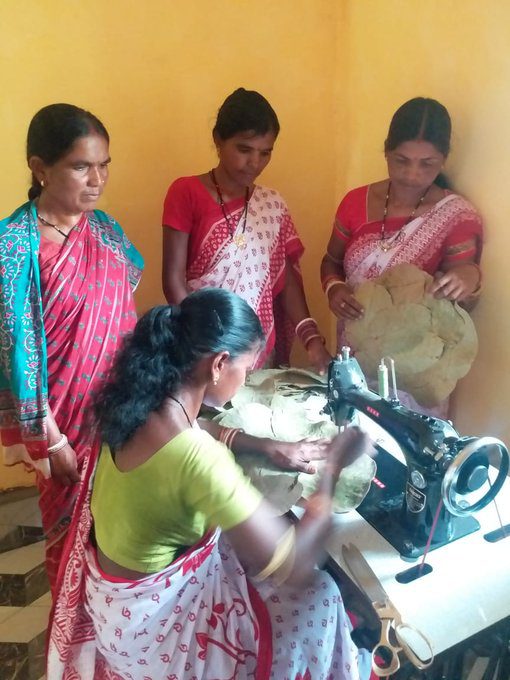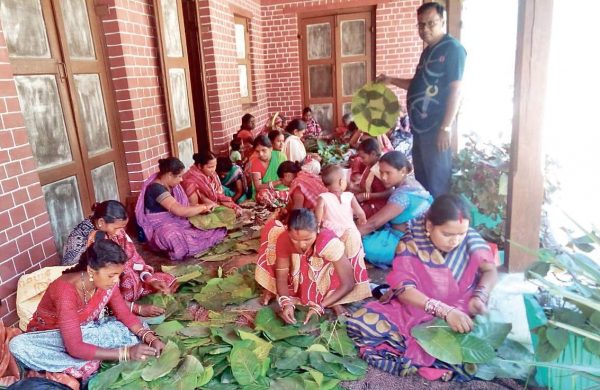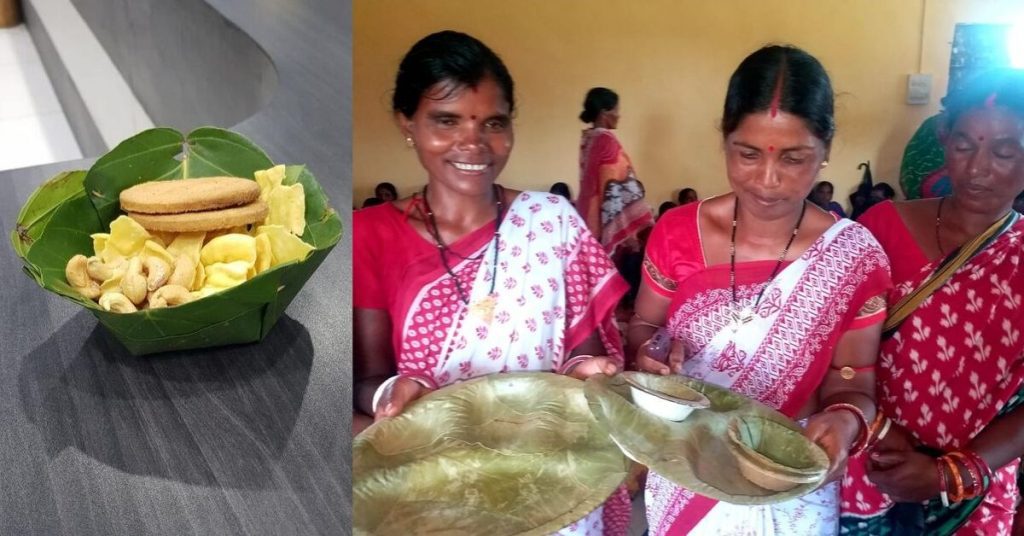Plastic waste is one of the major reasons behind melting glaciers and increasing global warming today. The thought never even crosses our mind that the plastic cup we are drinking out from or the plastic plate we just threw in the dustbin is the reason for ecological deterioration. But IAS Ashish Thakare’s initiative to go ecofriendly and use ‘khali’ plates, made of Sal tree leaves, instead of plastic ones, not only provided nature with a breath of fresh air, but also gave employment to score of tribal women in Odisha.

Replacing Plastic with Sal
2011-batch officer of the Odisha Cadre, Mr. Thakare’s decision to replace one time use plastic cutlery with plates and bowls made out of sal leaves gained him accolades from the entire administration. Currently, he is the District Magistrate and Collector of Keonjhar, where he made the amazing decision of making cutlery out of sal leaves which is available in abundance in the region and is ecofriendly.
Keonjhar is a small district and till around a decade ago, every feast and function made use of beautiful plates made out of sal leaves, but slowly the urban trend of using disposable plastic plates spread its roots into the rural areas too. Plastic was cheaper and easier to avail, so people shifted onto it. Very soon, the picturesque locations of the district were stained with non-biodegradable plastic plates and glasses strewn all around. That is when Mr. Thakare realized that it was high time to go green.
“Keonjhar is well-known for its sal forests. Sal leaf products are a specialty here. It was about time we ditched the plastic for a cleaner & greener alternative,” he remarked in an interview

Promoting Eco-friendly Alternatives
Charity begins at home, and therefore before going out to convince the residents to go eco-friendly and start using sal leaf plates called khali, the officer decided to begin the usage from his own workplace,- that is the District Collectorate. He took out the entire plastic cutlery from his office premises, replaced these with khali plates and earthen cups. Anybody who enters the office is surprised to see sal leaf cutlery on the Magistrate’s place of work, and nobody leaves without appreciating the step taken.
Not only that, each and every person employed in the office is asked to bring his/her own metal or glass bottle to refill and reuse, thereby diminishing extra wastage. “The decision was officially adopted by a circular issued around a month ago. In addition to the sal plates, we were also instructed to bring our own water bottles to the office every day,” said Akshay Das, the head clerk at Keonjhar district collectorate.

Employing Tribal Women
When khalis started getting replaced with plastic cutlery and utensils, the transition left a major impact on the forest-dependent tribal communities of the district, which is known widely for its sal forest stretches. The sole livelihood of these native dwellers depended on producing cups and plates out of sal leaves. Thousands of people were rendered jobless and were forced to give up their ancestral vocation due to the rising popularity of plastic utensils.
But with the comeback of khali plates, the tribes of Keonjhar have started regaining their employment. Today, numerous self-help groups in Telkoi, Banspal and Harichandanpur villages of Keonjhar have been allotted the job of securing these sal leaf plates and bowls on a huge scale
“More than 500 women are expected to be involved in the project and earn a sizeable monthly income,” informs Swapan Goswami, a nodal officer in charge of the project.

The Keonjhar administration, under the charge of Mr. Thakare, is doing as much as possible for these tribal women. In order to ease their responsibilities at home, and reducing their stress of leaving behind their little children alone, the administration has opened a number of crèches, where the women can leave their children into safe hands and focus fully on their work, free of cost.
The initiative taken by the Keonjhar district administration is helping the nature to heal itself. It has also proved to be a boon to the numerous local tribal people who were forced to sit at homes due to lack of work. The sal leaf plates are not only reviving ancient traditions but are also empowering women strongly. It is true that a little step really goes a long way!



































